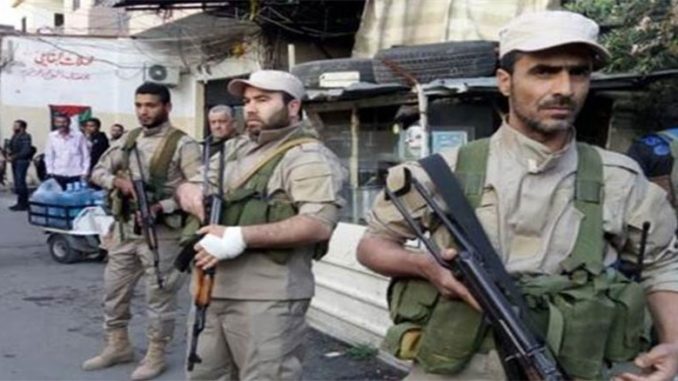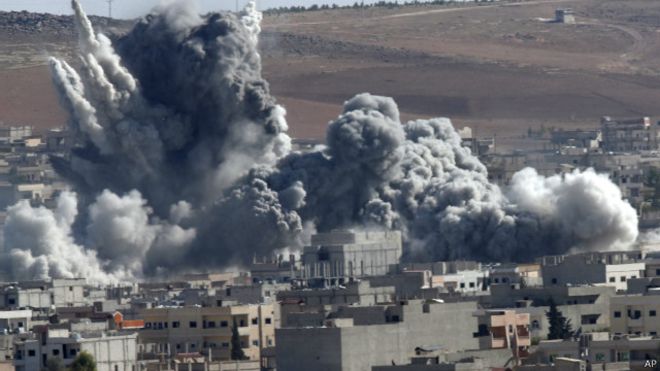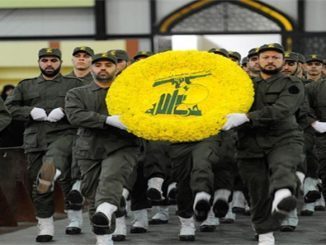
Armed clashes between Palestinian joint forces and an Islamic militant group that erupted on Friday night have continued into Saturday in Lebanon’s Ain al-Hilweh Palestinian refugee camp, as two have been reported dead amid the violence and 15 others injured.
Lebanon’s National News Agency (NNA) reported that a member of the joint Palestinian forces and a member of the Fatah movement were killed in the armed violence.
Palestinian residents of the camp have started fleeing the scene, according to NNA.
On Friday, NNA reported that a child was among the injured, but the agency did not specify their exact age.
Last month, two Palestinians were killed and four were injured during similar clashes.
In February, armed violence in the refugee camp left an 18- and 12-year-old Palestinian dead, while at least eight others were injured — including a pregnant woman.
The violence was strongly condemned by UNICEF and UNRWA, the UN agency responsible for providing services to some five million Palestinian refugees.
A spike in armed violence between Fatah supporters and Islamist groups in Ain al-Hilweh in December left two dead and at least five injured, with UNRWA suspending its operations in the camp as a result.
The largest and most crowded refugee camp in Lebanon, Ain al-Hilweh is home to some 54,116 registered refugees who fled their villages during the establishment of the state of Israel in 1948, according to the UN.
However, the population has significantly increased since 2011 as a result of the Syrian war, as Palestinians have been displaced a second time from refugee camps across Syria, with development nonprofit organization Anera estimating the camp’s population to be closer to 120,000.
According to UNRWA, Ain al-Hilweh suffers from high rates of poverty and poor housing conditions, which have been further stressed as a result of overcrowding in recent years.
Palestinians in Lebanon have the highest percentage of their population living in abject poverty from among the other countries the organization serves, according to UNRWA.
Facing discriminatory employment policies, Palestinians in Lebanon are restricted from working in over 20 professions or claiming the same rights as other non-citizens in Lebanon, while all the refugee camps suffer from overcrowding, poor housing conditions, and a lack of infrastructure.



